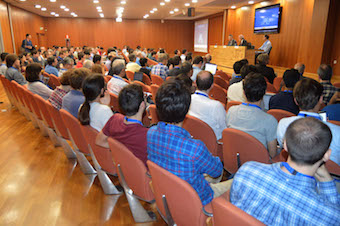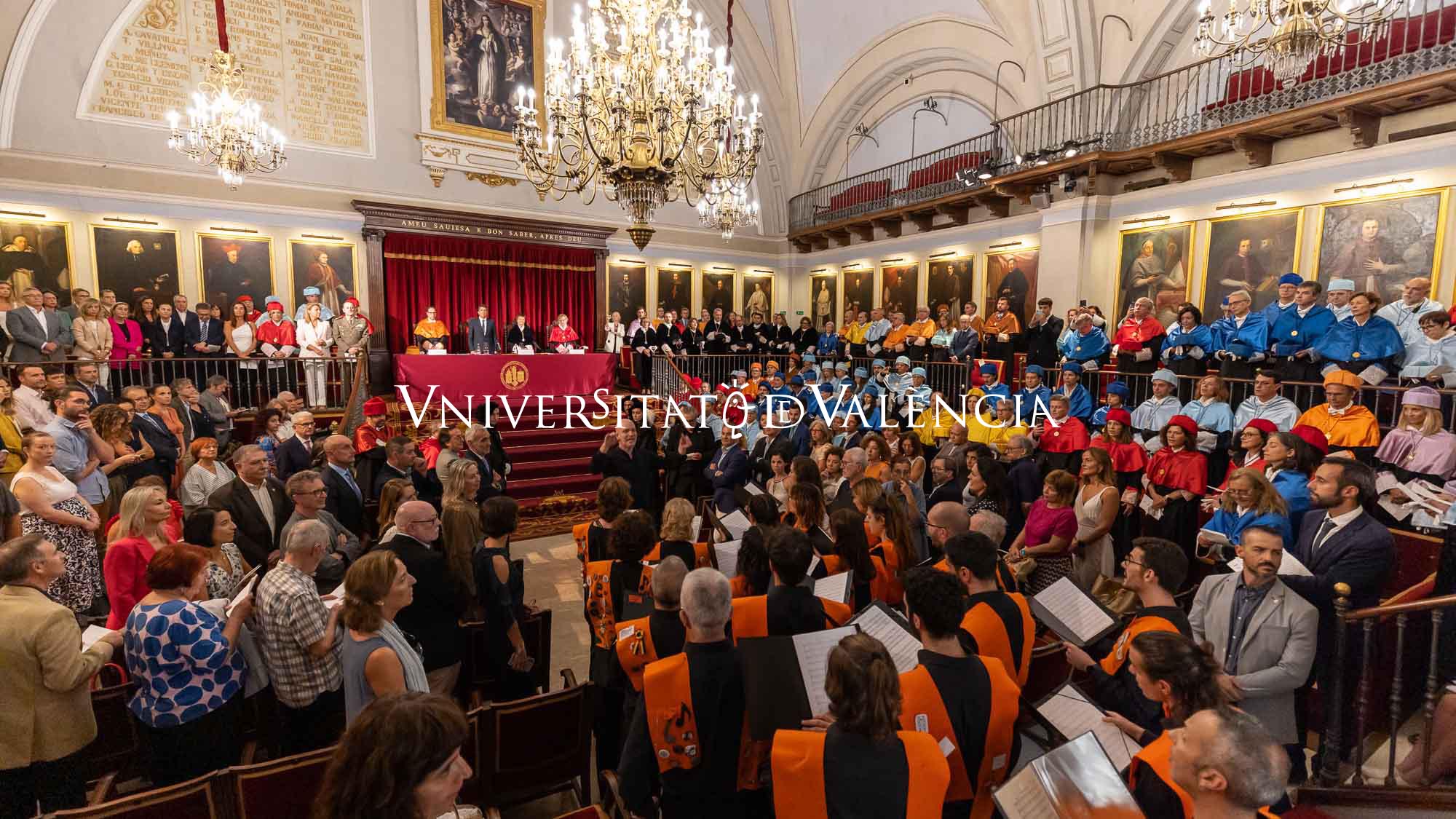
More than 200 experts from all over the world are gathering this week in Valencia to discuss the principal progresses in the theories that describe the functioning of nature and in which they propose the existence of the ‘new physics’. It is Planck 2016, an international meeting that is celebrated for the first time in Valencia organised by the Institute of Corpuscular Physics (IFIC, CSIC-UV) Severo Ochoa excellence centre, pioneer in the study of elemental particles.
From the biggest to the smallest. From the detection of gravitational waves to the searching of new particles in the Large Hadron Collider (LHC) of the CERN. More than 200 experts from all over the world are gathering this week in Valencia to discuss the principal progresses in the theories that describe the functioning of nature and in which they propose the existence of the ‘new physics’. It is Planck 2016, an international meeting that is celebrated for the first time in Valencia organised by the Institute of Corpuscular Physics (IFIC, CSIC-UV) Severo Ochoa excellence centre, pioneer in the study of elemental particles.
The international conference From the Planck Scale to the Electroweak Scale (Planck 2016) is the 19th of a series started by different European networks of research in theorical particle physics. The conference was inaugurated today by the Principal of the Universitat de València, Esteban Morcillo, and the director of the IFIC, Juan José Hernández, in an event celebrated at the headquarters of the University-Business Foundation (ADEIT) where the conference is taking place until Friday 27 May.
The elemental particles that constitute all that we can see and its interactions are described in the called Standard Model, a theory that was completed with the discovery of the Higgs boson in 2012. However, there are still a lot of open questions related to the properties of neutrinos, the nature of dark matter or the possible existence of new particles that are not described by this model.
These are some of the topics the conference deals with, that collects 170 presentations in a tight schedule. The observation in 2015 of an anomaly in certain collisions of LHC, that some interpret as a sign of existence of a new particle, is one of the most attention drawing topics at the Planck 2016. Representatives of the LHC experiments will present the results in Valencia, with the just initiated LHC and waiting for more data to confirm or refute this fact.
Another of the highlighted topics is the searching of dark matter, which form a quarter of the Universe but which nature is still unknown. Several experts will present the last theories on what type of particle could constitute this new form of matter and how to detect it. The most popular candidates are WIMPs (weakly interacting massive particles), but there are other options like lighter particle (axions) or the existence of a new type of neutrino.
At Planck 2016 there is also place for the scientific discovery of the year, the detection, a century after the prediction made by Albert Einstein, of gravitational waves: ripples in space and time caused by very violent events like, for instance, the collision of two black holes. This was the case of gravitational waves detected by the LIGO experiment. Alicia Sintes, responsible of the only Spanish group in the scientific collaboration that did the finding and member of its directive committee, presents the discovery.
Another expected presentation is the one that fives the data of the complete functioning period of Plank, the European Space Agency satellite that, between 2009 and 2013, captured the most remote and precise image of the primitive Universe through the study of the cosmic microwave background. The neutrino physics, Higgs boson and other theories that propose the existence of physics beyond the Standard Model like the string theories or supersymmetry, also have a prominent presence at Planck 2016.
The international conference Planck 2016 is organised by the Institute of Corpuscular Physics (IFIC, CSIC-UV), with the support of the Office of the Secretary of State for R&D&I of the Ministry of Economy and Competitiveness and of the IFIC itself through the programme Severo Ochoa Excellence Centre.
More information:
http://congresos.adeituv.es/planck2016/ficha.en.html
Last update: 23 de may de 2016 11:09.
News release


















